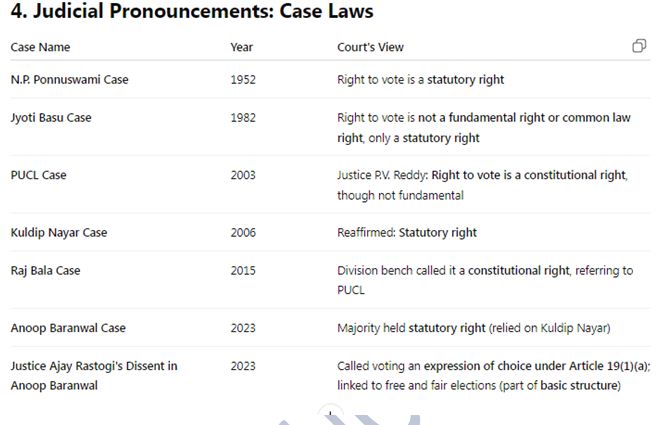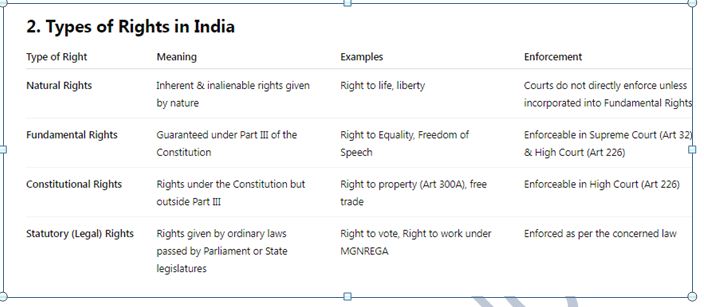July 22, 2025
Right to Vote in India/differences between various types of rights:
Why in News? The Right to Vote in India, including relevant case laws and the differences between various types of rights:
Relevance : UPSC/UPSC Mains
Mains : GS 2
Right to Vote in India:
1. Current Issue
- The Supreme Court is hearing cases against the Special Intensive Revision (SIR) of electoral rolls in Bihar.
- One of the core questions: What is the legal status of the Right to Vote?
3. Right to Vote in the Constitution:
- Article 326: Provides for universal adult franchise.
- Eligibility: Citizens aged 18 years or more, not otherwise disqualified.
- Disqualifications: As per the Representation of the People Act, 1950 & 1951.
Relevant Provisions:
- Representation of the People Act, 1950:
- Section 16: Non-citizens cannot be voters.
- Section 19: Voter must be 18+ and ordinarily resident.
- Representation of the People Act, 1951:
- Section 62: Right to vote for those enrolled in the electoral roll.
- Disqualification if in prison or under legal disqualification.

Current Legal Position:
- Right to Vote is a Statutory Right, as per the majority in Anoop Baranwal (2023).
However, debates continue about elevating it to a constitutional right, due to its link with Article 326 and democratic principles
Why the Debate Matters?
- Free and fair elections are part of the Basic Structure of the Constitution.
- Some judges and scholars argue that right to vote should be treated as a higher-order right to protect democratic integrity.
- This issue becomes crucial in cases like Bihar’s Special Intensive Revision (SIR) of electoral rolls.

GIST OF DAILY ARTICLES THE HINDU/INDIAN EXPRESS : 4 sep 2025
September 4, 2025
Gist of Daily News Papers Articles/The Hindu /Indian Express-1 Sep 2025
September 1, 2025
GIST OF DAILY ARTICLES THE HINDU/INDIAN EXPRESS/27 August 2025
August 27, 2025
